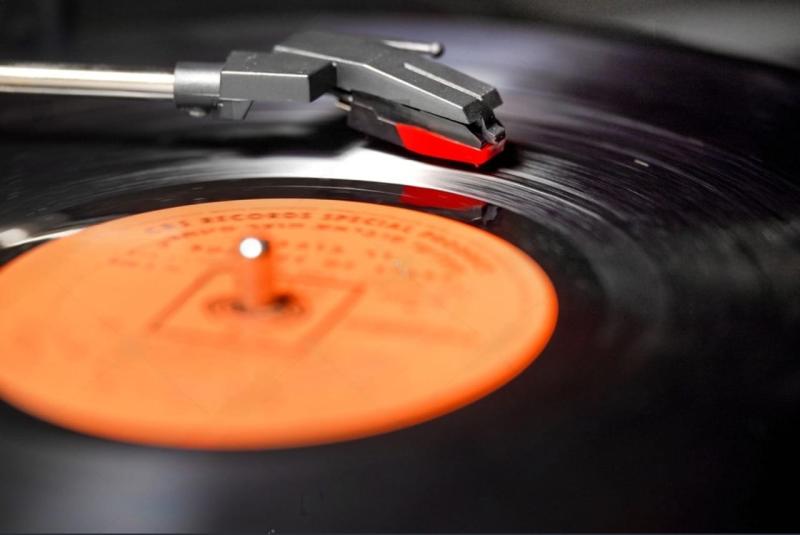The Science Behind Why We Love Music

Music has a universal appeal that transcends cultures, languages, and even generations. But have you ever wondered why we love music so much? Whether it’s the songs that make us dance or the melodies that move us to tears, music has a profound impact on our brains and emotions. Understanding the science behind why we love music can help explain this powerful connection. From the chemistry of the brain to evolutionary psychology, let’s explore what makes music such a universally loved experience. Some people even use tools like a Spotify album downloader to save their favorite tracks and hold onto these memories.
How Music Affects the Brain
At the core of why we love music is its effect on our brains. When we listen to music, our brains release dopamine, a neurotransmitter associated with pleasure and reward. This is the same chemical that is released when we experience other enjoyable activities, such as eating or exercising. In fact, research has shown that listening to music can increase dopamine levels by as much as 9%, leading to feelings of happiness, satisfaction, and even euphoria.
Different types of music can activate different parts of the brain. For example, rhythmic beats often stimulate the motor cortex, which is responsible for movement, making us want to tap our feet or dance. On the other hand, melodies and harmonies engage the auditory cortex, allowing us to process and enjoy the structure of the music. The emotional areas of the brain, such as the amygdala and the hippocampus, are also activated, helping to create the emotional responses we associate with certain songs.
The Evolutionary Perspective
From an evolutionary standpoint, music may have played a vital role in human survival. Some scientists believe that music helped our ancestors bond with one another, fostering social cohesion and cooperation. Group activities like singing and dancing may have strengthened group identity and promoted teamwork, which were essential for survival in early human societies.
Moreover, music may have also been used as a form of communication before the development of complex language. The rhythms and tones in music could convey emotions, warnings, or signals of safety, helping early humans communicate more effectively. This theory suggests that our love for music is deeply ingrained in our biology, serving as a tool for both individual pleasure and group cohesion.
Emotional Responses to Music
One of the most fascinating aspects of music is its ability to evoke strong emotional reactions. Whether it’s joy, sadness, nostalgia, or excitement, music has the unique ability to make us feel deeply. Part of this response is due to the brain’s limbic system, which is responsible for regulating our emotions. When we hear a song that resonates with us, this system is activated, causing a flood of emotional responses.
Research shows that certain features of music, like tempo, rhythm, and harmony, can trigger specific emotions. Upbeat, fast-tempo music tends to make us feel energized and happy, while slower, minor-key music can evoke feelings of melancholy or reflection. Music’s ability to tap into our emotions is one of the key reasons we’re so drawn to it—it provides an emotional outlet and helps us process our feelings.
The Role of Memory in Music Appreciation
Memory also plays a significant role in why we love certain types of music. Often, we associate specific songs with particular moments or periods in our lives, creating emotional connections to those tracks. Hearing a song from your childhood or a tune you played during a significant life event can trigger vivid memories and emotions.
The hippocampus, the part of the brain responsible for memory, works closely with the auditory cortex to process these musical memories. This connection explains why some songs can transport us back in time, allowing us to relive past experiences through music. For many, this nostalgia is one of the reasons they develop such deep emotional attachments to certain songs or genres.
Music and Social Connection
Music also has a powerful social component. It brings people together in ways that few other things can. Whether it’s at a concert, a festival, or a family gathering, music creates shared experiences that foster connection. In fact, studies have shown that people who listen to music together are more likely to bond and feel empathy toward one another.
This social bonding is thought to be another reason why we love music so much. From a young age, we experience music in social contexts—whether it’s singing in school, attending family gatherings, or playing in a band. These shared experiences enhance our appreciation for music and deepen the emotional responses we have to it.
Why We Develop Personal Preferences
While there are scientific explanations for why music in general has such a strong impact on us, personal preferences also play a significant role in our love for music. Over time, we develop specific tastes based on our experiences, environment, and emotional needs. Some people may gravitate toward upbeat pop music because it energizes them, while others might prefer calming classical tunes to relax.
These preferences are also influenced by our cultural background, social circles, and exposure to different types of music. As we grow older, our tastes often evolve, reflecting our changing emotional states and life experiences. This is why the music we loved as teenagers might still hold a special place in our hearts, even if our current tastes have shifted.
The Power of Music in Our Lives
Music is more than just entertainment—it’s a powerful tool that taps into our emotions, memories, and social connections. From the brain’s chemical reactions to the evolutionary benefits of bonding through song, the science behind why we love music is complex and fascinating. Whether it’s the rush of dopamine from a catchy melody or the nostalgia evoked by a familiar tune, music has an undeniable impact on our minds and hearts. It’s no wonder that it remains such a beloved and essential part of human life.
Post Your Ad Here

Comments